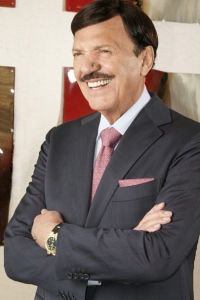One of her father’s many fine qualities was that he had a great eye for people, explained Bertha Gonzalez. And although he chose Giselle Petzinger, MD, to be his physician because of her top reputation, he came to admire her professionalism with patients and respect the contributions she hoped to make to the understanding of Parkinson’s disease.
For this reason, Roberto Gonzalez’s family chose to honor his memory by establishing the USC Roberto Gonzalez Parkinson’s Research Fund. A $1.5 million contribution will further Petzinger’s research on the effect of exercise on patients with Parkinson’s. Petzinger, an assistant professor of research in the Department of Neurology at the Keck School of Medicine of USC, has been studying which types of exercise are most efficient for keeping the symptoms of Parkinson’s disease at bay.
Petzinger said she was thrilled to receive the gift from the Gonzalez family because it will further her research, and because it came from a patient with whom she had a special bond. “He was a big believer in leading a healthy lifestyle,” said Petzinger. “We shared a common bond in wanting a deeper understanding of the connection between health and lifestyle.”
Petzinger added that Gonzalez understood that her research project is both costly and detailed. It involves basic science and human trials, including putting more than 150 people through an exercise protocol designed for Parkinson’s patients. Ultimately, Petzinger and her team hope their research will lead to new therapeutics for Parkinson’s patients.
Once the research is complete, Petzinger will share the findings with colleagues in Mexico, which was a condition requested by the family because Gonzalez was concerned about the lack of support and good medical care for Parkinson’s patients in Mexico. Petzinger noted that Gonzalez is widely known and much-loved throughout Mexico because of his philanthropic work, which will continue through the family foundation.
“It was something he spoke about before he died,” said Bertha Gonzalez, “and it is something we agree needs to be addressed in Mexico.”
— Hope Hamashige


